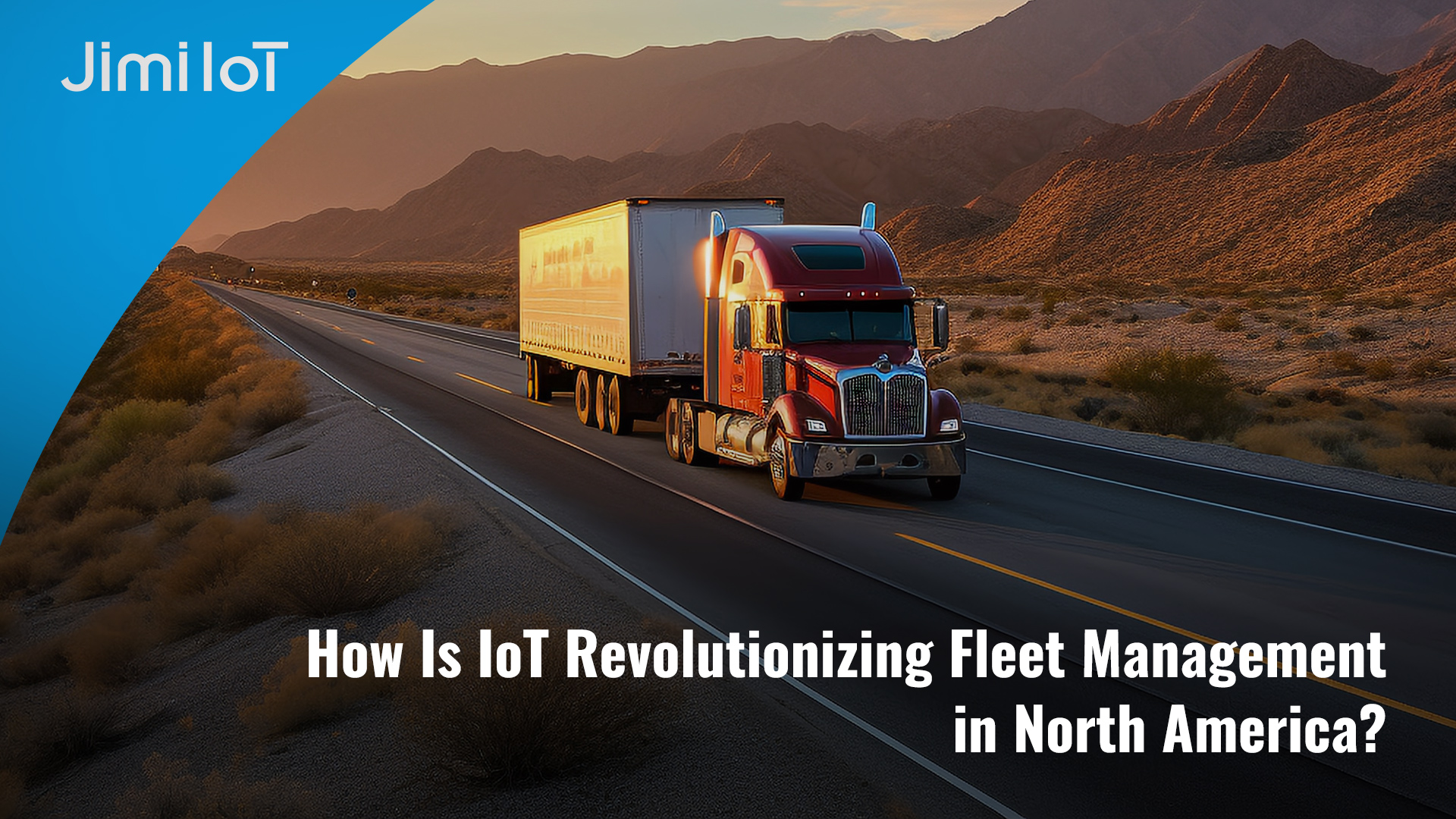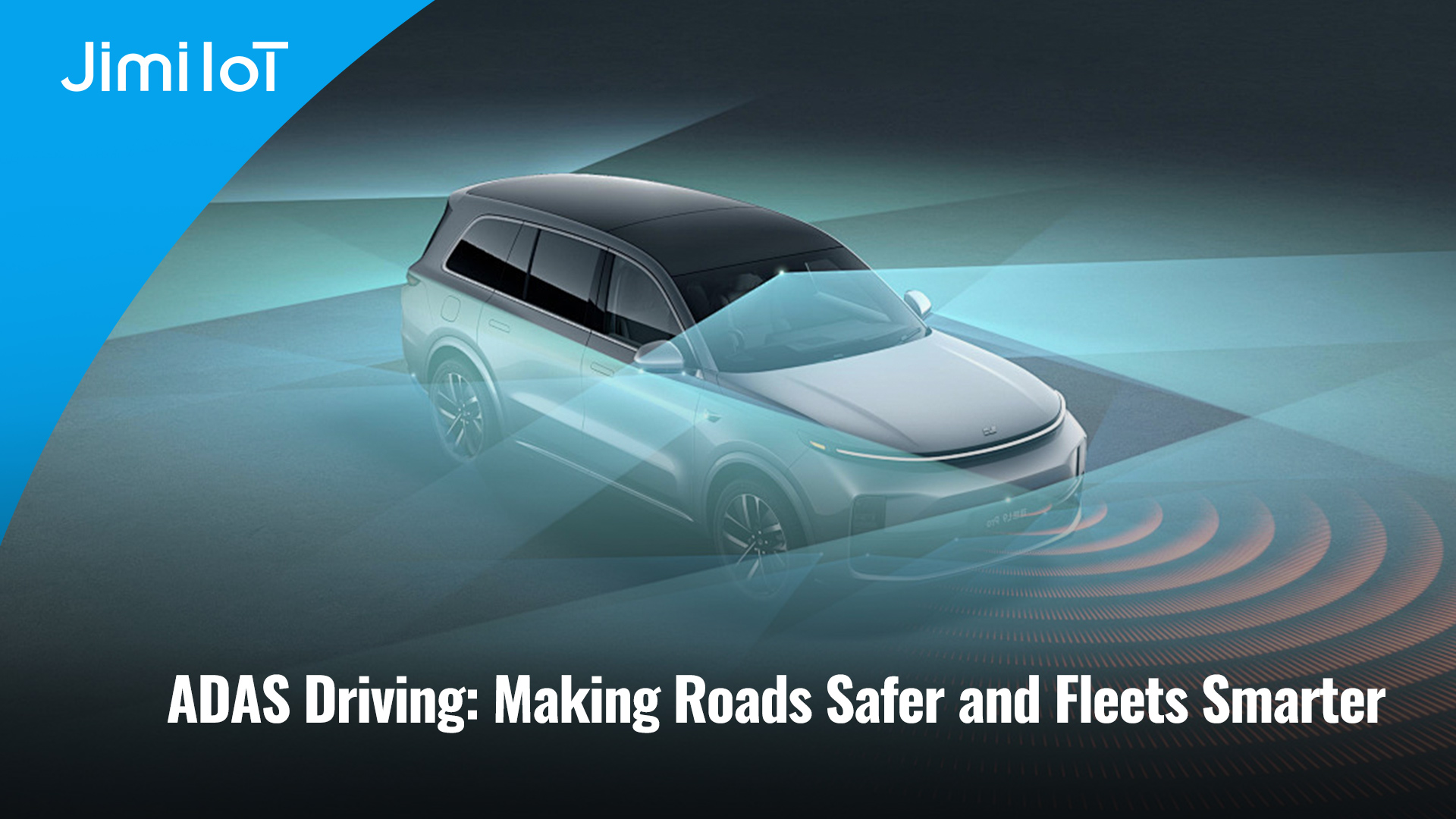The transportation and logistics industry in North America is undergoing a dramatic transformation driven by rapid technological innovation. Among these advancements, the Internet of Things (IoT) stands out as a key catalyst in modernizing fleet management and enhancing overall operational efficiency. In this article, we delve into how IoT is reshaping the landscape of fleet management in North America, addressing prevailing industry challenges and offering insights into future trends that are set to redefine the sector.
The Current Landscape of Fleet Management in North America

North America, home to one of the largest logistics networks in the world, faces unique challenges in managing large fleets of commercial vehicles. With thousands of trucks traversing highways daily—from cross-border freight operations between the United States and Canada to intra-city deliveries—fleet managers grapple with maintaining vehicle safety, optimizing routes, and ensuring regulatory compliance. Moreover, issues such as rising fuel costs, increased environmental regulations, and the pressure to improve customer service add layers of complexity to day-to-day operations.
Traditional fleet management systems, while useful, often fall short in delivering real-time insights and predictive analytics. In many cases, delays in data collection and a lack of actionable intelligence can result in inefficient route planning, heightened security risks, and increased operational expenses. These factors underscore the urgent need for more sophisticated, responsive solutions to meet the demands of modern logistics.
The Role of IoT in Transforming Fleet Operations
IoT technology has emerged as a game changer for fleet management by connecting vehicles, drivers, and management systems through a network of smart devices and sensors. At the core of this revolution is the ability to capture, transmit, and analyze real-time data from every vehicle in a fleet.
Real-Time Tracking and Accurate Positioning
One of the most critical aspects of modern fleet management is real-time vehicle tracking. IoT-enabled GPS devices provide continuous updates on vehicle locations, empowering fleet managers to monitor routes, assess traffic conditions, and identify potential delays before they escalate. In North America, where cross-border shipments and long-haul journeys are common, ensuring precise and timely location data is pivotal. With advanced multi-source positioning systems—integrating GPS, BDS, AGPS, and LBS—IoT devices offer unparalleled accuracy even in challenging environments such as urban canyons or remote highways. This enables fleet operators to optimize routes and reduce fuel consumption while improving delivery times.
Enhancing Vehicle Security and Theft Prevention
Security remains a paramount concern for fleet managers, especially in regions with high rates of cargo theft or vehicle tampering. IoT solutions address this challenge by incorporating robust security features such as geofencing, remote immobilization, and instant alerts for unauthorized movements. For instance, if a vehicle strays from its designated route or enters a high-risk area, an immediate notification is sent to the fleet manager, allowing for quick intervention. This not only deters theft but also facilitates faster recovery of stolen vehicles, reducing downtime and financial loss. In a market where cargo security can directly impact a company’s bottom line, IoT-driven security measures are proving to be an invaluable asset.
Improving Driver Safety and Behavior Monitoring
The safety of drivers is another critical area where IoT is making a significant impact. By integrating telematics with advanced sensors, IoT devices can monitor driver behavior, such as harsh acceleration, abrupt braking, and aggressive cornering. This data is essential for training drivers and promoting safer driving habits. Many fleet management systems now provide detailed analytics and reports, enabling managers to implement targeted interventions and driver improvement programs. In turn, this reduces the risk of accidents and liability claims, ultimately lowering insurance premiums and operational costs. For North American fleets, where safety regulations are stringent and highly enforced, such enhancements in driver behavior monitoring are critical.
Enhancing Operational Efficiency and Cost Management
Operational efficiency is the cornerstone of a successful fleet management strategy. IoT technologies offer deep insights into vehicle performance and operational metrics that are essential for making data-driven decisions. With real-time tracking, fleet managers can optimize routes, reduce idle times, and ensure vehicles are used to their fullest potential. This level of operational oversight helps in reducing fuel consumption, minimizing maintenance costs, and ultimately improving profit margins.
Moreover, IoT systems facilitate predictive maintenance by continuously monitoring key vehicle parameters such as engine performance, battery health, and tire pressure. By anticipating potential issues before they become serious problems, companies can schedule maintenance during planned downtimes, avoiding costly emergency repairs and minimizing disruptions to operations. The cumulative effect of these efficiencies is a more streamlined, cost-effective fleet management process that can adapt to the ever-changing demands of the logistics industry.
Addressing Key Challenges with IoT Solutions
For fleet managers and logistics professionals, the transition to IoT-driven solutions is not merely about adopting new technology—it is about resolving long-standing operational challenges. Here, we explore some of the most pressing issues and how IoT devices directly address them.
Customs and Regulatory Compliance
Cross-border transportation in North America often involves complex customs procedures and regulatory compliance. Trucking companies must maintain meticulous records of vehicle movements and ensure that all shipments adhere to stringent guidelines. IoT devices capture detailed, real-time data that can be leveraged to create a transparent digital record of each journey. This documentation is invaluable during customs inspections, as it demonstrates compliance with approved routes and regulatory requirements. The integration of GPS data with electronic logging devices (ELDs) further streamlines the process by automating the collection and submission of necessary documentation, reducing the likelihood of paperwork errors and delays at the border.
Cargo Security in a Competitive Market
Cargo theft is a persistent issue in the transportation industry, with significant financial implications for businesses. IoT-enabled tracking systems provide continuous monitoring of vehicle movements and create virtual geofences that alert operators if a vehicle deviates from its designated route. For companies operating in high-theft regions or transporting high-value goods, this security mechanism is critical. By leveraging real-time GPS and telematics data, fleet managers are empowered to act quickly, coordinating with local authorities to recover stolen assets. Ultimately, the enhanced visibility provided by IoT not only deters theft but also instills confidence in customers and stakeholders who demand the highest levels of security.
Reducing Operational Disruptions
The complexities of managing a large fleet across diverse geographic regions often lead to operational disruptions. Whether due to unexpected traffic congestion, adverse weather conditions, or mechanical failures, such interruptions can have significant financial and reputational consequences. IoT technology mitigates these issues by providing continuous, real-time monitoring of vehicle performance. For instance, if a vehicle experiences a sudden drop in speed or an unexplained route deviation, immediate alerts allow fleet managers to investigate and rectify the issue promptly. This proactive approach to fleet management minimizes disruptions, ensuring that goods are delivered on time and that operational efficiency remains high.
The Future of IoT in Cross-Border Fleet Management
As IoT technologies continue to evolve, their role in cross-border trucking and fleet management will only become more integral. Emerging trends such as the integration of artificial intelligence (AI) and machine learning (ML) with IoT systems promise to unlock new levels of efficiency and security. Predictive analytics, powered by vast amounts of real-time data, will further enhance decision-making processes, enabling fleet managers to foresee challenges and optimize operations in advance.
Additionally, advancements in connectivity, such as the rollout of 5G networks, are set to accelerate the capabilities of IoT devices. With faster data transmission and lower latency, 5G will enhance real-time tracking, enabling even more precise route optimization and asset monitoring. For North American fleets, these improvements will lead to smoother operations, lower costs, and improved overall performance in an increasingly competitive global market.
Conclusion
GPS tracking technology is redefining the landscape of cross-border trucking in North America. By delivering real-time location updates, ensuring regulatory compliance, enhancing cargo security, and providing deep insights into operational performance, IoT devices have become indispensable tools for fleet management professionals. The challenges inherent in international logistics—ranging from customs complexities to the ever-present threat of cargo theft—are being effectively mitigated by advanced GPS systems that offer unparalleled visibility and control.
For fleet managers and logistics professionals, the strategic implementation of IoT tracking solutions is critical. By embracing these technologies, businesses can not only improve operational efficiency and reduce costs but also build a more secure and resilient transportation network that is well-equipped to navigate the demands of modern global trade.
In the rapidly evolving world of cross-border transportation, investing in sophisticated GPS tracking systems is not simply an option—it is a necessity. As the backbone of international trade continues to strengthen, businesses that adopt and integrate advanced IoT solutions will be the ones to lead, innovate, and sustain competitive advantages in the global market.
For more in-depth insights on how GPS technology can transform your cross-border trucking operations and address your key business challenges, we invite you to connect with us today.
Why JimiIoT
JimiIoT is a global leader in innovative IoT solutions. We provide cutting-edge hardware and software tailored to enhance efficiency and connectivity. Our range of products includes advanced GPS tracking devices, asset management solutions, smart vehicle dashcams, and telematics platforms. With a focus on technological excellence and customer satisfaction, we empower businesses to optimize operations and gain valuable insights from data-driven analytics. Trust JimiIoT to drive positive change and unlock growth opportunities in the digital age.
If you would like more details, please visit Facebook, LinkedIn, INS, and Twitter pages for further information.
 EN
EN ES
ES PT
PT TH
TH VN
VN JP
JP



